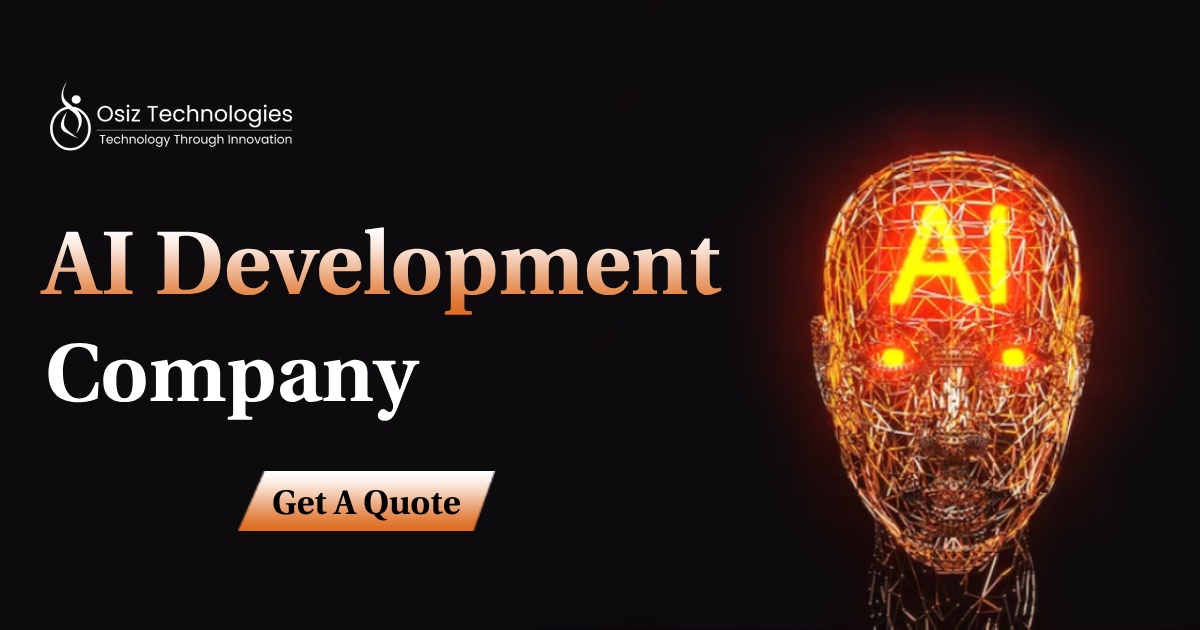What is AI development?
AI development refers to the process of creating and enhancing artificial intelligence (AI) systems. Artificial intelligence involves the development of algorithms, models, and software that enable machines to perform tasks that typically require human intelligence. The goal of AI development is to create systems that can learn, adapt, and perform tasks autonomously without explicit programming.
Key aspects of AI development include:
- Data Collection and Preprocessing
- Training Models
- Optimization and Fine-Tuning
- Deployment and Maintenance:
What are the benefits of AI development?
AI development offers numerous benefits across various industries and aspects of society. Some of the key advantages include:
- Automation: AI enables the automation of repetitive and mundane tasks, freeing up human resources to focus on more complex and creative activities. This leads to increased efficiency and productivity.
- Data Analysis: AI excels at processing and analysing vast amounts of data at high speeds. This capability is invaluable for extracting meaningful insights, identifying patterns, and making data-driven decisions.
- Cost Savings: Automation and improved efficiency result in cost savings for businesses. AI can streamline processes, reduce errors, and optimise resource allocation, leading to overall financial benefits.
- Improved Accuracy: AI systems can perform tasks with a high degree of accuracy, especially in areas such as data analysis, image recognition, and natural language processing. This can lead to better decision-making and reduced human errors.
- Personalization: AI can be used to analyse user behaviour and preferences, enabling the customization of products, services, and user experiences. This personalization enhances customer satisfaction and engagement.
- Innovative Applications: AI development fuels the creation of innovative applications and solutions across various industries, including healthcare, finance, transportation, and entertainment. Examples include personalised medicine, fraud detection, and autonomous vehicles.
- Predictive Analytics: AI models can forecast future trends and events based on historical data, aiding businesses in making informed predictions and strategic decisions.
- Efficient Customer Service: AI-powered chatbots and virtual assistants enhance customer service by providing quick responses, 24/7 availability, and personalised interactions, improving the overall customer experience.
- Healthcare Advancements: AI contributes to medical research, diagnostics, and personalised treatment plans. It can analyse medical images, identify patterns in patient data, and assist in drug discovery.
- Enhanced Security: AI technologies, such as facial recognition and anomaly detection, bolster security measures. They can be used for identity verification, fraud detection, and monitoring critical infrastructure.
- Environmental Impact: AI can be employed to optimise energy consumption, manage resources efficiently, and support sustainability efforts. For example, it can enhance smart grids, optimise transportation routes, and reduce environmental impact in various industries.
AI solutions for various industries:
AI solutions have found applications across a wide range of industries, transforming processes, enhancing efficiency, and unlocking new possibilities. Here are some examples of AI solutions tailored for specific industries:
- Healthcare:
- Diagnosis and Imaging: AI is used for analysing medical images (X-rays, MRIs, CT scans) to assist in the early detection of diseases.
- Drug Discovery: AI accelerates drug development by analysing vast datasets and predicting potential drug candidates.
- Personalised Medicine: AI analyses patient data to tailor treatment plans based on individual genetic makeup and medical history.
- Finance:
- Fraud Detection: AI algorithms can detect unusual patterns and anomalies in financial transactions, helping to identify fraudulent activities.
- Algorithmic Trading: AI is used to analyse market trends and execute trades at high speeds, optimising investment strategies.
- Customer Service: Chatbots and virtual assistants powered by AI enhance customer interactions and provide real-time support for banking and financial services.
- Retail:
- Recommendation Engines: AI analyses customer preferences and behaviour to provide personalised product recommendations.
- Inventory Management: AI helps optimise inventory levels, reducing stockouts and overstock situations through predictive analytics.
- Supply Chain Optimization: AI enhances logistics and supply chain operations, optimising routes, demand forecasting, and warehouse management.
- Manufacturing:
- Predictive Maintenance: AI analyses equipment data to predict when machinery is likely to fail, enabling proactive maintenance and minimising downtime.
- Quality Control: Computer vision systems powered by AI can inspect and identify defects in real-time during the manufacturing process.
- Process Optimization: AI optimises production processes by analysing data to identify inefficiencies and areas for improvement.
- Automotive:
- Autonomous Vehicles: AI technologies, including computer vision and machine learning, enable self-driving capabilities in vehicles.
- Predictive Maintenance: AI helps predict and prevent breakdowns in vehicles by analysing data from sensors and diagnostics.
- Driver Assistance: AI-powered systems assist drivers with features like adaptive cruise control, lane-keeping assistance, and collision avoidance.
- Telecommunications:
- Network Optimization: AI optimises network performance, predicts equipment failures, and enhances overall network efficiency.
- Customer Service: Chatbots and virtual assistants powered by AI can handle customer queries, troubleshoot issues, and provide support.
- Fraud Detection: AI analyses patterns in network traffic to detect and prevent fraudulent activities.
- Education:
-
- Personalised Learning: AI analyses student performance data to provide personalised learning experiences and adapt educational content.
- Administrative Efficiency: AI automates administrative tasks, such as grading, scheduling, and resource allocation.
- Language Processing: AI supports language learning through applications like chatbots and language translation tools.
Conclusion:
In conclusion, the rapid advancement of artificial intelligence has undeniably transformed the landscape of technology, revolutionizing the way businesses operate and innovate. As we stand at the precipice of unprecedented possibilities, it is crucial to align with a reliable and visionary partner in the realm of AI development.
Osiz, as a leading AI development company, stands out as a beacon of expertise and innovation. With a commitment to delivering tailored AI solutions that cater to the unique needs of businesses, Osiz has positioned itself as a trusted ally in the journey towards harnessing the power of artificial intelligence. Their dedication to pushing the boundaries of what is possible in AI development sets them apart in the competitive landscape.
To Know More:
https://www.osiztechnologies.com/ai-development-company
For Business Proposal:
Call/Whatsapp: +91 9442164852
Telegram: Osiz_Tech
Skype: Osiz.tech
Email: sales@osiztechnologies.c


No comments yet